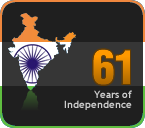 I believe in watching films with a clear mind, without preconceived expectations or a care for their past laurels. I believe in judging a film for its message, the perfection it attains in being the vehicle of a certain sensation that lasts with its audience beyond its run-time, like a taste which is sometimes bitter and sometimes sweet, like an impression from memory which one often loves to narrate but cannot relive. A good film could be that magical a thing.
I believe in watching films with a clear mind, without preconceived expectations or a care for their past laurels. I believe in judging a film for its message, the perfection it attains in being the vehicle of a certain sensation that lasts with its audience beyond its run-time, like a taste which is sometimes bitter and sometimes sweet, like an impression from memory which one often loves to narrate but cannot relive. A good film could be that magical a thing.I never looked up 'Nirgendwo in Afrika' (Nowhere in Africa) on imdb before I watched it this afternoon and now as I sit to write a review, hurriedly, almost afraid that I may lose that lingering taste in my mouth soon, I find that it won the Oscar in the Best Foreign Film category in 2002.
The film is set in the 1935 period of Nazi upsurge of influence and follows the life of a German Jewish family fractured as a result of severe Anti-Semitism. Walter Redlich(Merab Ninidze), a Jewish lawyer fervently wishes to see his wife and daughter flee Nazi Germany and join him in Kenya. Being perspicacious he is able to ascertain the imminent Jewish persecution that is to soon engulf all of Europe. Though his wife, Jettel (Juliane Kohler) and daughter, Regina (Lea Kurka) find a way to Africa he fails to convince his father and sister who still consider Deutschland as their own. The story moves on with the family trying to find its footing in an alien land amidst all its attendant inconveniences. Walter's Kenyan cook, Owuor (Sidede Onyulo) finds a friend in young Regina and life settles down to a routine at the cattle-farm for the family. The film pictures every character and their personal little battles with 'change' and 'compromise', yet it portrays a blesmishless collage which is much more than being a mere sum of the individuals. The difficulties of Jettel in settling down to a life in the wilderness amongst 'negroes' and her constant worries around Regina's education and upbringing bring out one facet of resettlement, that of angst and uncertainty in the thinking adults whereas on the other hand, the way in which Regina holds onto her new life with fumbling little fingers drips with hope and inspiration characteristic of the unsullied infant mind. Her bonding with Owuor goes beyond ties of blood and is resplendent in all its innocent glory.
Walter, driven and determined, yet a practical and pragmatic character is portrayed with elan by Ninidze. In his little battles with himself he stands as both the victor and the vanquished. He is a strong provider, a caring husband and a loving father on one hand and on the other he has his own insecurities to tend to. The family is shattered as news from Germany leaks in, that of brutality and death. The helplessness in knowing that your loved ones are dying and you cannot do a thing grips them with guilt and grief at the same time. The film is more like a fascinating journey where one is almost moved to tears of joy, as in the scene where little Regina narrates how her 'Jewish' father has asked her not to waste "their little money" and "study really hard" to the stern and visibly prejudiced British Principal and it brings a smile to his face, to the delight of the audience. Certain scenes are sheer irony in motion, one of them being Owuor telling Jettel how "white women are weak. Black women can take care of themselves."
With Kohler playing the role of a conundrum of a character to perfection and the African setting providing the ideal backdrop for the drama the film attains great cinematic heights. Heights which are quite different from the ones attained by ' 'Schindler's List' or 'The Pianist' which stay within Nazi Germany and Poland respectively to tell tales of persecution and despair as 'Nowhere in Africa' carries the viewer far from the hotbed of war and hatred and show effectively, with all its cinematic poesy the plight of people touched by war, even thousands of miles away from it. A film which accomplishes the basic objectives of inspiring human empathy and thought, I believe, it should figure in every film-lover's favourite list.
The defining moment of the film for me was when Jettel says to Regina on the topic of Jews and how different they are from others, " What I've learnt here is how valuable differences are. Differences are good."
I would say no more.
Watch the film for yourselves to know.
poster: google.com






